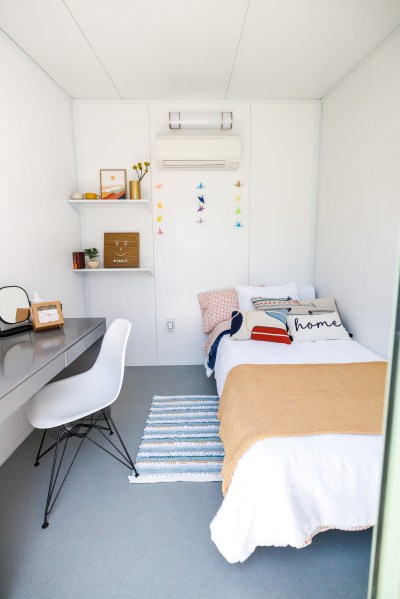Santa Barbara Supes Approve 94 Transitional Cabins
Built for People Now Living on the Streets of Santa Maria

The county supervisors happily signed paperwork to launch a new community of 94 transitional prefabricated “cabins” for people now living on the streets of Santa Maria. Dubbed Hope Village, the land is being provided by Santa Barbara County for five years plus $1 million to cover the management costs of the Good Samaritan Shelter.

DignityMoves, a philanthropically minded collection of youthful entrepreneurs looking to create a nationally exportable model — quick and relatively cheap — for creating transitional housing for unhoused people is raising $3.4 million, and Dignity Health is kicking in $2 million. In exchange, 30 of the 94 beds will be set aside for homeless people released from Marian Hospital, another 10 will be set aside for former foster kids between the ages of 18 and 24, and the other 54 will be for people from the streets of Santa Maria. DignityMoves has also generated the 34-cabin cluster in downtown Santa Barbara. Both are managed by Good Samaritan. Supervisor Steve Lavagnino took pains, however, to credit soon-to-be-retired County Administrator Terri Maus-Nisich for making both deals happen. “Without Terri, none of this ever happens,” Lavagnino stated. The goal is to build 400 units of these prefabricated cabins throughout the county.
Occupants will be given a private room with a door that can be locked. Pets and partners will be allowed, storage will be provided, and there will be mental health professionals and drug and alcohol counselors. Curfews will be enforced. Supervisors Lavagnino and Bob Nelson have been meeting with nearby businesses, residents, and workers to gage their concerns. There will be problems, Lavagnino acknowledged, but with Good Samaritan at the helm, he expressed confidence they will be addressed swiftly. “Even if we had 95 graduates from Harvard here, there would be issues,” he said. Lavagnino took exception to those who worry that “‘if you build it, they will come.’” To them, he stated, “We haven’t built it, and they came anyway.”




You must be logged in to post a comment.